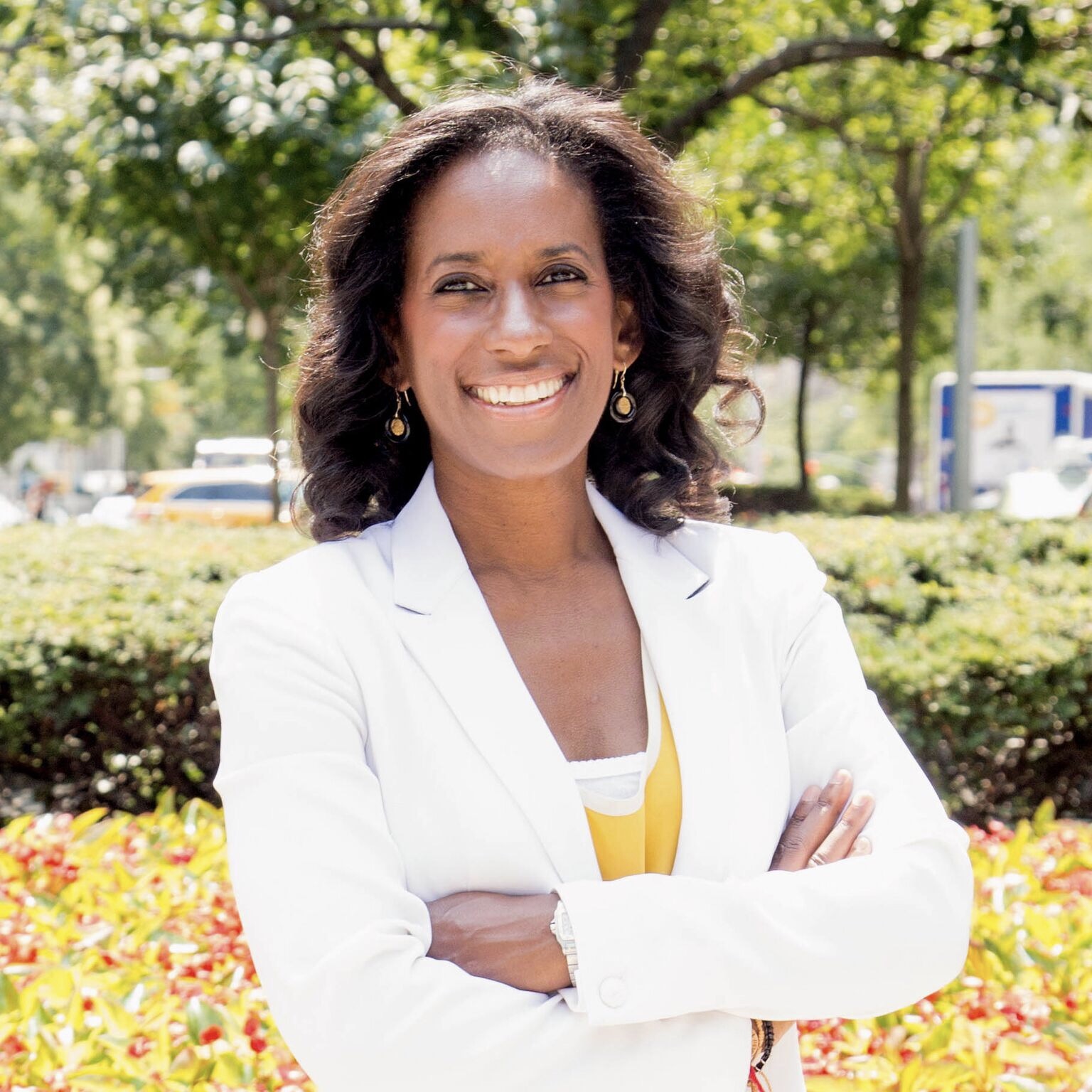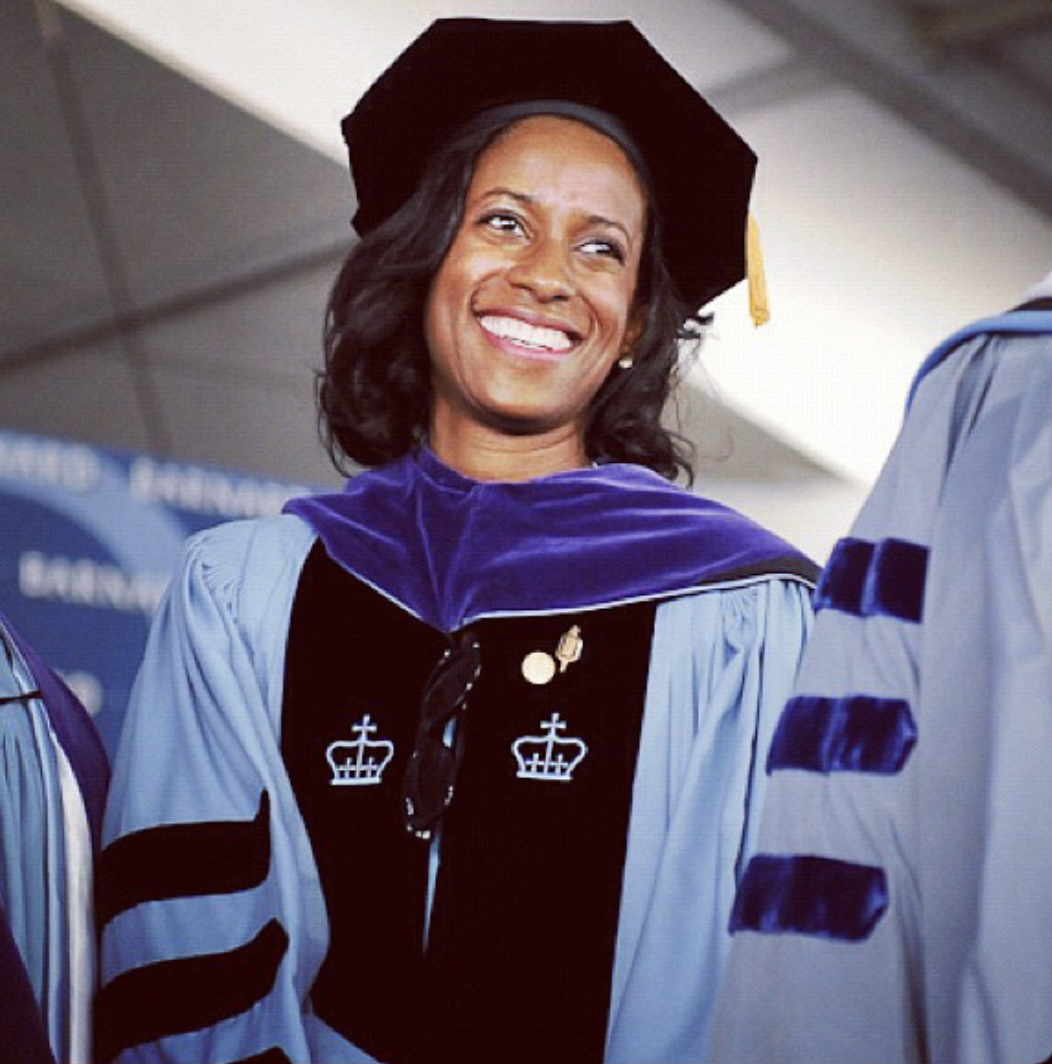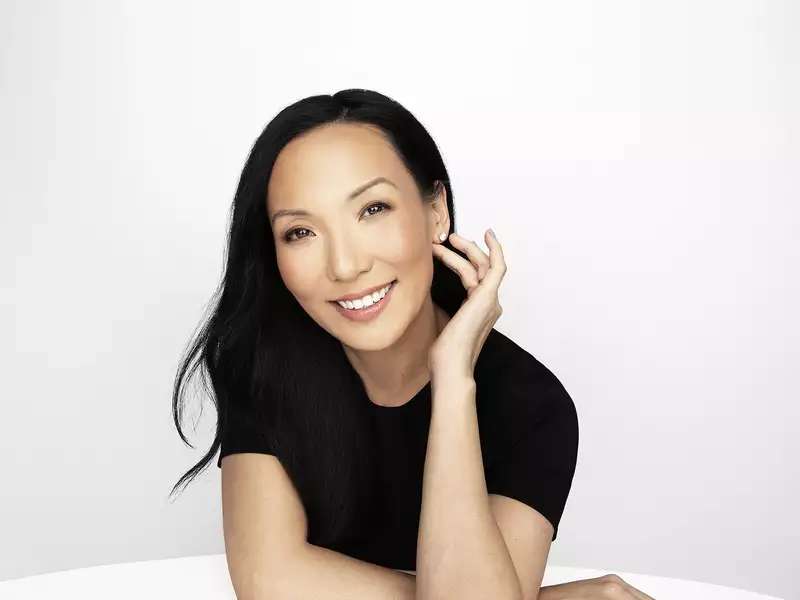I really came to believe in myself at Barnard, and I doubt that I would have had any success in the music business or the legal industry without that confidence.
Binta Brown ’95 has always made advocacy a central part of her life, professionally and personally. “I think society is a reflection of our cultural and creative industries, so for me being in the music business is also a form of protest, advocacy, [and] human rights work,” Brown said. As the founder of the artist management company omalilly projects, co-chair of the Black Music Action Coalition, and new music executive at Keep Cool/RCA Records, she has dedicated her career to fighting inequity and discrimination against marginalized communities, interweaving her passions for music and theatre with racial justice activism.
Her work has paid off: In 2020, Brown was named to Billboard’s 2020 “Women in Music” list and their “R&B/Hip-Hop Power Players” list.
In every position she has held and in every space she has worked, Brown has remained an outspoken and determined leader. She attributes her confidence to her time at Barnard, remembering how supportive her friends, faculty, and community were of her studies and her love for the arts. “At Barnard I learned that my opinions and thoughts had value. I learned how to articulate them,” Brown said. “I had professors who helped shape those thoughts, helping me to discover who I am and can be through my studies, teaching me how to think, to write.”
After graduating from Barnard with a degree in political science and economics, Brown earned a degree from Columbia Law School and started her career in corporate law, working as an associate for Cravath, Swaine & Moore LLP and then as a partner in Kirkland & Ellis LLP. “I spent much of my career as a corporate lawyer doing high-profile human rights work as part of my pro bono practice [and] engaging in politics,” she said. “I don’t believe there has ever been a time in my life when I haven’t advocated for the advancement, potential, dignity and humanity of all people, in particular those whose lives have been negatively affected by oppression and discrimination, those who have not known privilege.”
Brown left her successful career as an attorney to found omalilly projects, an artist management, development, and music production company. Since then, she has also worked as executive director and co-founder of the Music Lab, a nonprofit educational program for young artists and musicians in Milwaukee. Through her leadership positions, Brown has pushed to make the business aspect of the music industry more supportive and equitable for Black artists.
“The music business is built, by and large, on the backs of Black artists, producers, sounds, and the work of many Black executives and managers. We are generating absurd revenues across genres and have influenced American sound since the beginning of the U.S. music business,” Brown said. “This isn’t about creating a space: This is about claiming equity in what we’ve created and [generated]. It is about fundamental fairness. American music would not sound the way it does without Black artists.”
Keeping with her pursuit of equity, Brown and her friends established the Black Music Action Coalition during the first months of the COVID-19 pandemic as mass protests against police brutality were sparked by the killing of George Floyd. The organization is a way to create change within the music industry, one of many fields reckoning with long-standing racial inequalities and discriminatory practices. “[We decided] to hold ourselves, our industry, and our society accountable, to fight for the dignity of all people, especially Black people, to shed light on injustice and to work to remedy it,” Brown said. “I don’t believe we had a choice. Because to do nothing is to condone a status quo that has never been acceptable to us and yet shows persistence in remaining.”
Now, as a new music executive at Keep Cool/RCA Records, Brown is looking to transform how labels conduct artist deals and ensure fairness, inclusivity, and anti-racism. Although COVID-19 has impacted the music business, Brown is confident that her industry will persevere and become more equitable, especially for marginalized communities. “There is a long way to go; however, there is reason to be hopeful and optimistic,” she said.
And if Brown ever does have doubts, all she has to do is think back to how she found her way as a young woman at Barnard. “I really came to believe in myself at Barnard, and I doubt that I would have had any success in the music business or the legal industry without that confidence,” she said. “I’m really blessed to be in a position to have had a big impact in two distinct industries, and I credit Barnard — which doesn’t accept boxes or limits and encourages young women to be all that they are — with that success.”
— SOLBY LIM ’22





